The Alexandreis of
Walter of Chtillon THE MIDDLE AGES SERIES Ruth Mazo Karras, General Editor
Edward Peters, Founding Editor A complete list of books in the series
is available from the publisher.
The Alexandreis of
Walter of Chtillon
A Twelfth-Century Epic A verse translation by
David Townsend

Copyright 1996 University of Pennsylvania Press
All rights reserved 10 9 8 7 6 5 4 3 2 1 Published by
University of Pennsylvania Press
Philadelphia, Pennsylvania 19104 Library of Congress Cataloging-in-Publication Data
Walter, of Chtillon, fl. 1170-1180.
[Alexandreis. English]
The Alexandreis of Walter of Chtillon : a twelfth-century epic :
a verse translation / by David Townsend.
p. cm. ) and index.
ISBN 0-8122-3347-6 (cloth : alk. paper)
1. paper)
1.
Alexander, the Great, 356-323 B.C.Romances. 2. Epic poetry,
Latin (Medieval and modern)Translations into English.
I. Townsend, David. II. III. III.
Series: Middle Ages series.
PA8310.G3A713 1997
For Talestris, Queen of the Amazons;
for the Scythian messenger;
para los Zapatistas:
the heroes in the margins of the Text
Contents
My debts of gratitude are many and various: to George Rigg, most collegial of colleagues, for sustained enthusiasm and support; to Claire Fanger, an accomplished translator and a keen critic; to Lois Kuznets, for ideas exchanged over the years, mostly in the kitchen; to Catherine Conybeare, Carla DeSantis, and Rob Moody, medieval Latinists with whom I shared readings of Walter that significantly shaped my understanding of his work; and especially to Maura Lafferty, who made suggestions for the notes. In 199293, Arianne Kossack, May Sham, and Adam Smears participated in a University of Toronto mentorship program for exceptional high school students; they helped me identify those passages for which the general reader might require elucidation in the notes, and to sketch out the kinds of annotation they considered helpful. The University of Toronto Office of Research Services provided me with research funds in 1990 that allowed me to spend time with manuscripts of the
Alexandreis housed in British libraries: exposure to material evidence of the codices afforded insights into medieval receptions of the poem that otherwise would have occurred to me, if at all, only later and less vividly. To my partner Rob Norquay I owe thanks for his support and patience at times when the project encroached on our lives. Finally, my most profound gratitude goes to Scott Westrem, whose erudition is matched only by his generosity, and whose meticulous comments made the translation both more accurate and more graceful than it would otherwise have been, although many flaws remain despite his good offices.
THE POEM AND ITS AUTHOR
Walter of Chtillons ten-book epic on the life of Alexander the Great is one of the high achievements of twelfth-century literature.
It ranks among the finest works of Latin literature in a century that also produced Bernard Silvestris, Nigel of Canterbury, the Ysengrimus poet, Alan of Lille, Walter Map, and Joseph of Exeter. In artistry and intelligence it loses nothing by comparison to the first flowerings of European vernacular literature. Yet Walters work, while today better known and more widely read than it was before the appearance of Marvin Colkers critical edition in 1978, remains largely an object of specialist scrutiny. Most undergraduate students and committed amateurs of medieval literature have never read it. Scholars of vernacular literature, with some notable exceptions, refer to it more or less cursorily as a work of ancillary interest. But to Walters own generation and the centuries following the poems composition, it was a work of undisputed preeminence.
Over two hundred manuscripts survive, the majority of them dating from the thirteenth century, but significant numbers representing the fourteenth and fifteenth centuries as well. If the poems interest were only historical in natureif it were only a curious monument to the otherness of tastes which modern readers cannot shareits neglect today might be allowed to go on without intervention. But the Alexandreis is also a work of qualities that shifts in literary expectation have not rendered inaccessible. Readers today can still find in the poem, and often find easily and intuitively, an extraordinary subtlety, a keen intelligence, a beauty in turns lyrical and outlandish, and at times even an uncanny postmodernity. It rewards the reader as richly as do many of the better-known texts we think of as the heart of medieval European literature. It deserves to be read alongside the medieval authors we have come to see as canonical, and to be read, by those for whom the original Latin is inaccessible, in a translation that tries to allow the reader an experience of the work as poetry.
We know less than we might wish of the poems author and of the circumstances of its composition. Walter was probably born around 1135. A number of biographical notices survive in the accessus (introductions) included among the glosses of some manuscripts. The Alexandreis is dedicated to William, as the opening of Book One and the close of Books Five and Ten attest. The initial letters of the poems ten books spell out GUILLERMUS. 8358, fol. 91V suggests that Walter composed the poem to regain Williams favor. 91V suggests that Walter composed the poem to regain Williams favor.
According to the anecdote, Walter was jealous of Williams sexual liaison with a cleric named Berterus; he took his revenge by contriving the recitation of a scurrilous jingle at the papal curia, thus effectively outing the archbishop (and himself) before the Pope: Some say that the works instigation lay in the restoration of Master Walters love in the sight of Lord William Archbishop of Reims, and in the enmity which he had incurred in his sight because of Master Berterus. If the truth is fit to speak, the Lord Archbishop William was using Berterus sexually, and Master Walter envied him. And indeed, at one point it happened that the archbishop sent Master Berterus to Rome to plead his case. Master Walter, thinking that he might there acquire some dignity under the guise of that affection, sent him these verses in letters close, indicating that he should not break the seal except in the presence of the Lord Pope, and this is how things turned out. Here are the verses: Sole head of the world, O Rome, you whove caused us to stray far from home and plunged all your pastors in stormy disasters, greet Walter, who comes here on loan, of women a wretched despiser. Let the Curia now be the wiser: to speak truth unriddled, his fair lord he diddled not once, as the young lads adviser, while still Homers verses brought tears to his eyes, but long since, in those years when a beard full and rough made him far tougher stuff, and the long march of days stilled his fears.
When the archbishop learned of this, he cut off Master Walter from his company. Knowing that he had incurred the wrath of his lord, Walter took thought how he might regain his love. He began and composed this book to his honor and praise, comparing his virtues to those of Alexander, and so this is the reason why William made Walter a canon, variously of Amiens, Beauvais, Reims, or Orlans, depending on the gloss one follows. Walter died of leprosy, or perhaps of self-flagellation; if of leprosy, perhaps contracted from a prostitute. In addition to the confusing and contradictory details drawn from the biographical notices, Walter is sometimes identified with a Walter of Lille who appears in the letters of John of Salisbury as a trusted emissary of King Henry II. (4) A
Next page


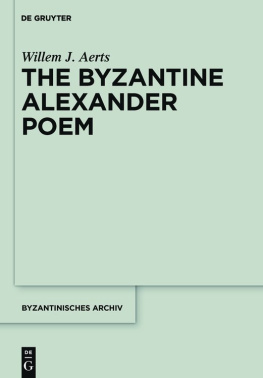

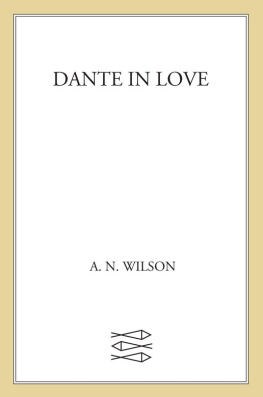
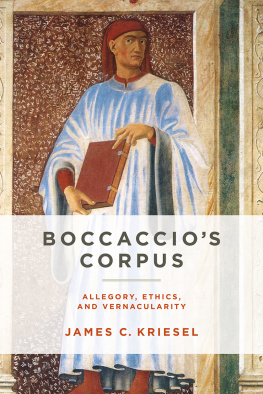
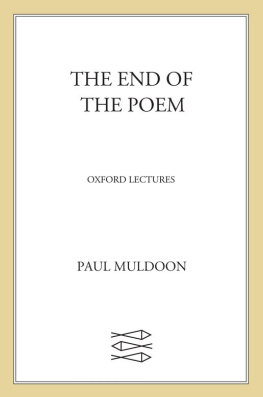
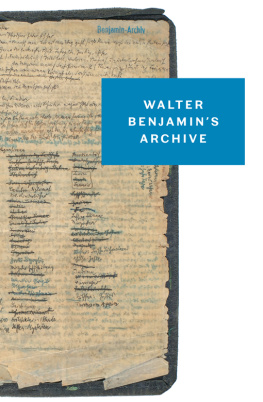
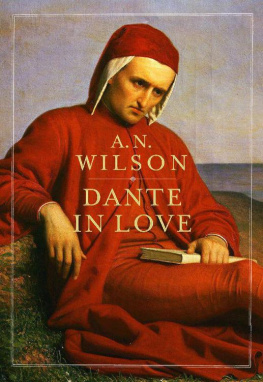
 Copyright 1996 University of Pennsylvania Press
Copyright 1996 University of Pennsylvania Press